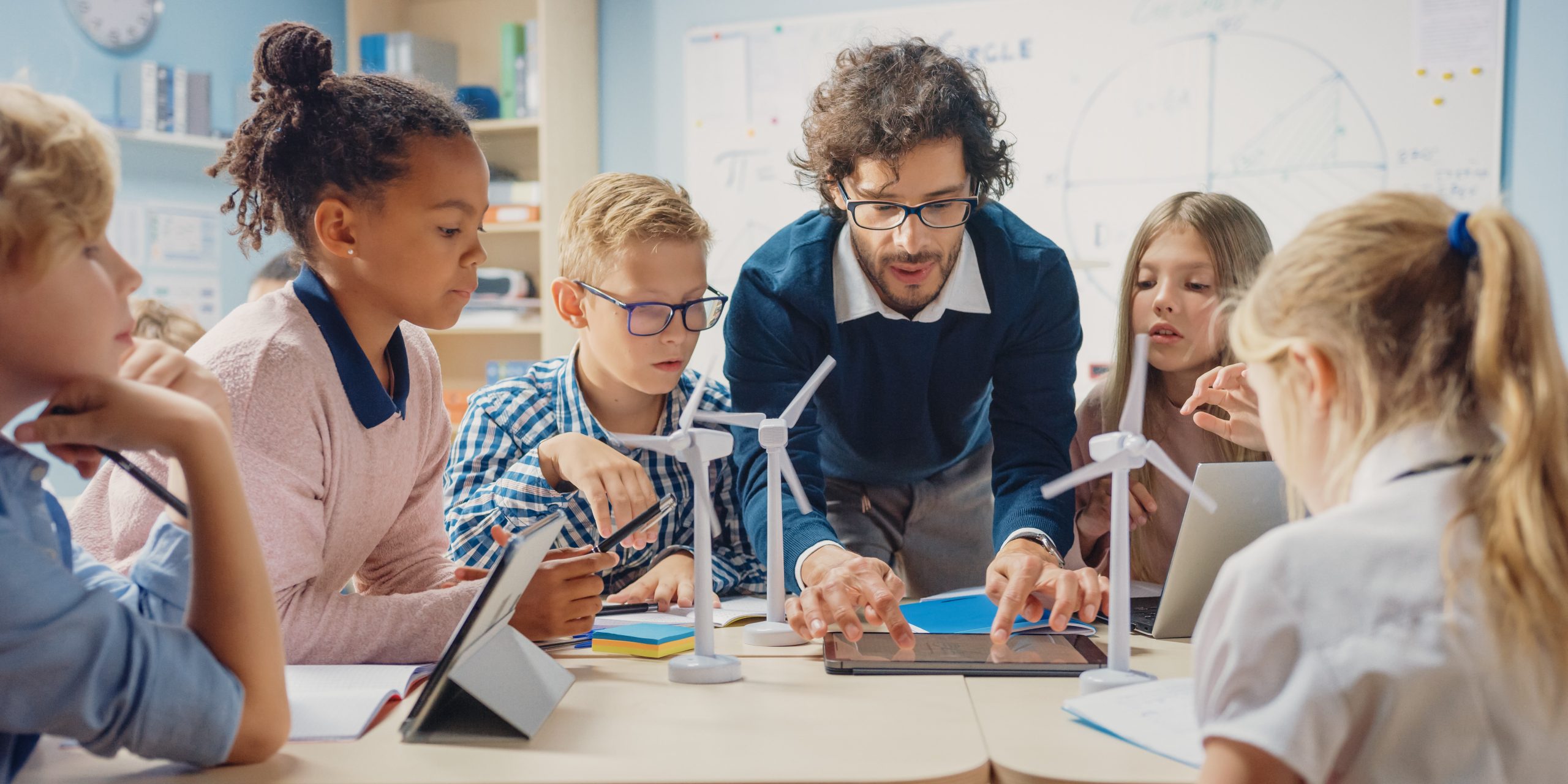Expert Tutors Offering Primary Science Tuition Singapore for All Grades
Expert Tutors Offering Primary Science Tuition Singapore for All Grades
Blog Article
A Comprehensive Guide to the Different Learning Approaches in Main Science Direction
The exploration of diverse discovering approaches in primary scientific research direction presents an opportunity for instructors to boost trainee interaction and understanding significantly. By examining hands-on learning techniques, inquiry-based approaches, and collaborative techniques, we can determine reliable methods that provide to various discovering styles.

Hands-On Knowing Methods
Hands-on discovering strategies play a critical function in key scientific research direction, involving trainees in active expedition and testing. These methods allow students to interact straight with products and sensations, cultivating a deeper understanding of clinical concepts. By utilizing manipulatives, models, and real-life experiments, teachers create an atmosphere where trainees can observe, assume, and check their ideas.
Such techniques not only boost comprehension however additionally grow vital thinking and problem-solving abilities. When students take part in tasks like constructing basic makers, growing seeds, or conducting chemical reactions, they are encouraged to ask concerns and look for solutions via their own monitorings. This experiential technique assists to demystify complex clinical principles, making them much more relatable and accessible.
Furthermore, hands-on understanding promotes partnership among peers, as trainees frequently operate in groups to perform experiments or share searchings for. This synergy not only enhances their learning experience however additionally develops necessary social abilities. Inevitably, integrating hands-on methods in key science guideline fosters a lifelong love of knowing and interest regarding the environment, laying a solid foundation for future scholastic quests in scientific research and past.
Inquiry-Based Discovering
Inquiry-based discovering is a training approach that motivates trainees to ask inquiries, examine phenomena, and create their own understanding of clinical concepts. This technique changes the emphasis from standard teacher-led instruction to a much more student-centered experience, where students take the effort in their educational trip. By fostering curiosity, inquiry-based discovering advertises deeper involvement with the product, enabling pupils to discover topics in a meaningful context.
In method, this approach commonly entails hands-on experiments, observations, and vital reasoning tasks that align carefully with the clinical approach. Pupils are motivated to create theories, style examinations, and evaluate information, which cultivates essential skills such as analytic and logical thinking. The duty of the teacher in this framework is to facilitate exploration, leading trainees via the query procedure while urging independent thought and cooperation.
Moreover, inquiry-based knowing nurtures a feeling of ownership over the learning procedure, encouraging students to pursue knowledge proactively. This technique not only enhances understanding of clinical ideas yet also promotes a long-lasting love for discovering, equipping pupils with the skills necessary to browse a significantly complex world.
Collaborative Understanding Approaches
Collective knowing approaches equip students to take part in significant interactions with peers, promoting a common obligation for their academic results. In primary science direction, these techniques urge students to collaborate to explore clinical principles, solve problems, and carry out experiments (primary science tuition Singapore). By taking part in team activities, students can leverage diverse viewpoints, enabling for richer understanding and retention of clinical knowledge
One trick facet of joint learning is the focus on interaction abilities. Students should articulate their thoughts, pay attention proactively to others, and negotiate ideas, every one of which are important proficiencies in both academic and real-world contexts. This social interaction not just enhances their understanding of scientific principles but also advertises team effort and dispute resolution skills.
When trainees see the value of their contributions within a group, they are more most read here likely to take ownership of their knowing trip. Generally, including joint understanding techniques in key scientific research guideline grows a dynamic understanding environment that prepares trainees for future academic and social obstacles.
Technology Integration in Scientific Research
The assimilation of modern technology in primary scientific research direction improves finding out experiences by offering cutting-edge tools and resources that support different mentor methodologies, including collective knowing - primary science tuition Singapore. Making use of digital platforms, simulations, and interactive applications permits pupils to engage deeply with scientific principles, facilitating a more hands-on method to discovering
Online laboratories, as an example, allow students to conduct experiments securely and efficiently, advertising inquiry-based discovering. These devices can imitate real-world clinical circumstances, enabling pupils to picture complicated processes that would be hard to replicate in a conventional class setup. Modern technology fosters communication and partnership amongst pupils, as they can share searchings for and work with each other on projects via on-line platforms.
Furthermore, multimedia discussions and educational video clips can improve lessons by satisfying diverse knowing designs, making abstract concepts a lot more obtainable. Information evaluation devices additionally encourage pupils to gather and interpret scientific information, strengthening critical believing abilities. Generally, the strategic consolidation of innovation in primary scientific research guideline not just improves engagement but likewise prepares students for a technically sophisticated culture, equipping them with vital abilities for future scientific undertakings.
Differentiated Direction Approaches
Distinguished guideline methods are vital for attending to the diverse needs of students in main science education. additional reading These strategies allow instructors to customize their mentor techniques to accommodate varying capacities, interests, and finding out styles within the classroom. By utilizing set apart instruction, educators can produce an inclusive setting that fosters involvement and improves understanding of scientific principles.
One reliable approach is to make use of adaptable organizing, which permits students to collaborate with peers at comparable ability levels or with varying point of views. This approach motivates peer understanding and promotes critical reasoning. Additionally, offering options in tasks can encourage trainees, permitting them to choose projects that resonate with their passions while still meeting curricular purposes.
In addition, incorporating tiered jobs is an additional useful strategy. Deliberately jobs with varying levels of complexity, teachers can ensure that all students are properly tested, despite their effectiveness. Utilizing formative analyses to assess understanding more enables instructors to readjust their training techniques dynamically, making sure that each learner obtains the support they need.
Inevitably, carrying out differentiated direction strategies in main science education not just enhances trainee understanding end results but also grows an interest for science, preparing pupils for future academic quests.

Conclusion
In recap, reliable primary scientific research guideline necessitates a multifaceted method that encompasses hands-on learning, inquiry-based approaches, and collective strategies. The combination of innovation and separated guideline further accommodates varied knowing styles, fostering an environment for expedition and critical reasoning. By carrying out these approaches, educators can boost trainee interaction and understanding, eventually nurturing a long-lasting interest for science and inquiry. Such extensive techniques are essential for creating educated and interested future researchers.
The exploration of diverse knowing approaches in primary scientific research instruction offers an opportunity for teachers to boost pupil interaction and comprehension substantially.Hands-on knowing strategies play a pivotal role in key scientific research guideline, involving pupils in active exploration and testing.Inquiry-based learning is an educational strategy that urges students to ask concerns, examine phenomena, and construct their very own understanding of clinical concepts.Collective understanding approaches encourage pupils to involve in meaningful interactions with peers, cultivating a common responsibility for their instructional end results. In general, integrating collaborative understanding look at these guys approaches in key scientific research direction cultivates a vibrant understanding setting that prepares pupils for future academic and social challenges.
Report this page